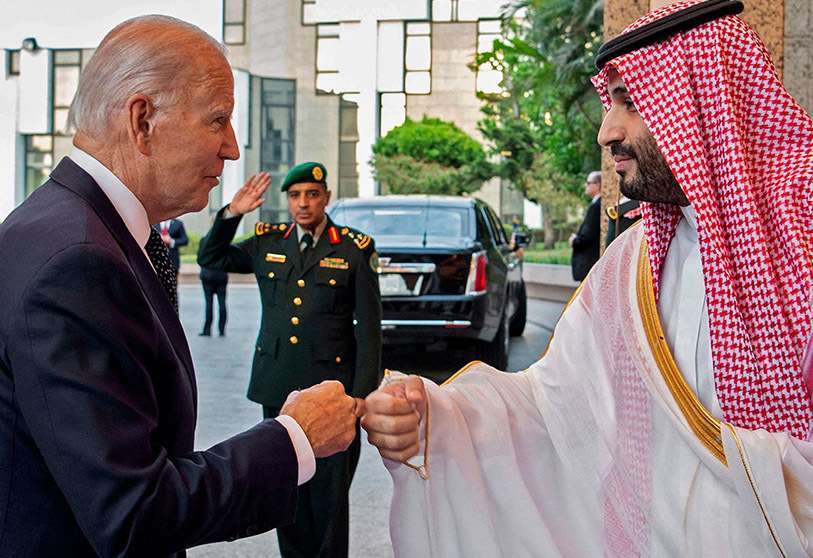Saudi Arabia: a steadfast and unwavering ally that yields to no one

Saudi Arabia has been implementing a strategy to develop a diversified economy, open to the outside world and become more autonomous from major international powers. These efforts are designed to improve the competitiveness of the Saudi economy, increase foreign investment, promote economic development and enhance the welfare of the population.
The Boeing aircraft deal between Saudi Arabia and the United States is a sign of the boundless ambition and ability of both countries to build a promising future. Although the deal is merely a capital investment, it is expected to bring a huge benefit to the Saudi economy, contributing $20 billion to Gross Domestic Product (GDP) and creating 200,000 new jobs. Moreover, the revenue generated by the deal is expected to offset the cost in less than three years. This shows that the Arab giant is willing to invest in its economy to improve its international standing, and its commitment to its people.

Saudi Airlines hopes to become the largest logistics hub in the Middle East region by carrying 330 million passengers annually through its official carriers, Saudi Arabia and Riyadh Airlines. Saudi Arabia's new transport agency is preparing to become the largest regional hub in its sector. This will ensure stable liquidity in supply chains between importers, suppliers and consignees. The Kingdom's unique geographical location will allow it to take advantage of sea and air transport means for global trade. This will make the country a leader in international transport and trade.
In October 2020, Saudi Arabia and China signed a strategic partnership agreement that included contracts worth more than $29 billion, as well as dozens of investment agreements in various sectors. These agreements also include joint projects in the Saudi city of NEOM worth $500 billion.
The Saudi Arabia-Boeing deal was an economic agreement that strengthened commercial ties between Washington and Riyadh. The US administration confirmed that the relationship is strong, but also stressed that the Saudi kingdom is a nation that prioritises its own interests over those of its allies. US officials have implied that US-Saudi relations will not change significantly after the announcement of the agreement. This decision is based on the fact that the Saudi government is an indispensable economic partner for the US, and its policy decisions have not necessarily been harmful to the country. Moreover, the fact that oil prices did not rise after the deal shows that Saudi Arabia's reading of market balances was correct and not political. This indicates that the US will continue to maintain a stable relationship with the Arab country.

The increase in Saudi state oil company Aramco's revenues in recent years is a clear sign that Saudi Arabia is taking steps to diversify its economy and leverage its key resources. This strategy is linked to the country's Vision 2030 programme, which is focused on ending oil dependence. These investments present a growth opportunity for the Kingdom, where its revenues are set to increase significantly in the coming years. Observers note that there is a clear trend in international politics to seek an equitable and balanced stance among all powers. This political stance is a way to create a more harmonious international environment, to promote more effective and stable cooperation between nations.
For its part, Russia has accepted that Saudi Arabia is an emerging economic power that can serve as a reliable ally, respecting ties with all but serving no one. This new vision of Saudi Arabia has been supported by its refining and petrochemical projects that it is implementing in several South Asian countries, but which do not pose a threat to the opportunities of other oil competitors. This reflects the commercial stability and respect for the investment side that is needed in the region, which has caused the US to reconsider its position towards the country.
Americas Coordinator: José Antonio Sierra.








